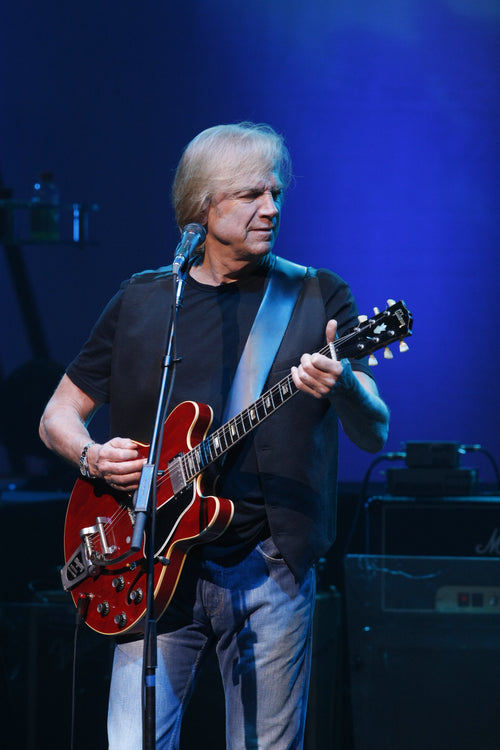
From Justin: Martin D 28
As Neil Young says in his Prairie Wind album "This old guitar aint mine to keep/It's mine to play for a while”. The guitar he uses on the song looks to me like a Martin D 28. The same model, but even older, than the one I have used on every album since 1969.
There is always a sense with beautiful guitars than you will never be the only one to hold it, love it and expect it to give itself up to you.
Mine was made in 1955 and I got it from a guy who used to come to gigs with a van full of exceptional instruments knowing that (because in the sixties there were always lots of musicians on a bill), he would usually make a sale. After all, he had saved us all the effort of carefully looking for quality, and also from being tempted to settle for second best. As you will know, every instrument is unique and different to even the one made on the same day, by the same hands.
Before I had my Martin I was using, for a couple of years, another lovely bright acoustic guitar. A Yamaha that I still have. I believe it is the one pictured with me on the inside cover of 'To Our Children's Children's Children'.
That's the guitar that gave us those lovely, open acoustic sounds on the three 68/69 albums, and is responsible for, among others 'The Actor' and 'Never Comes The Day'.
I was still living in one room in Bayswater when I wrote the Actor. In a tiny flat on the ground floor with a bed that I unfolded down out of the wall at night and a cupboard that was laughingly called a kitchen. The whole room was actually just the bay window of a big old mansion block (it's still there), opposite Kensington Gardens and it was perfectly placed for the swinging sixties.
With certain songs, I have a total recall of the time of writing them, and 'The Actor' is one. As usual, I came home from a gig one night, still kind of buzzing and 'up', and I just started fiddling around on the Yamaha with the clear intention of writing something following on in the sprit of 'Tuesday Afternoon'. I always liked the tempo change in Tuesday, and I suppose that type of musical device was one of our trademarks in those days. This time I felt the change in reverse so that the song started with the swing bit and moved to the straight tempo.
As the night wore on, and the traffic outside started to fade, what at first I had intended to be a light airy outdoor kind of song turned into a blue, almost dark intimate revelation of feelings from deep inside. The tongue-tied confusion, turmoil, sadness and vulnerability of love is often expressed in art, and music is the most direct medium.
I could picture every scene of the Actor, every line and every thought as if it were happening, played out on a screen in front of me.
I didn't think I would easily be able to explain the songs lyric to anyone; all I could hope was that the feeling was capable of being shared.
The recording a few weeks later at Decca No 1 studio was uncomplicated and not in any way trying or stressful as could sometimes be the case. Ray and I worked hard on the flute part, and once we had established the triplet feel at the beginning of the flute phrase, the rest fell into place. Mike re-enforced and embellished Ray's parts with the melotron flute sounds.
As I have probably said before, I always looked forward to the vocal sessions, and once I had got the lead down it became a pleasure to do the harmonies in the chorus (usually around one microphone), knowing that the key was right for our regular parts to really sound out. Ray was doing the low part, me and Mike in the middle, and John on the high E.
The whole track took on a rather distant, ethereal quality in the mix. And, although I appreciated, at the time, Tony Clarke's intention in doing cross fades of almost every song on an album, it has become hard in the years since, to find versions with a clean start and end.
The sheer simplicity of recordings like 'The Actor' has meant that transferring to the stage version has always been an easy process, and unlike some tracks, there has never been a temptation to resort to recorded backing tracks to boost the live version.
In Italy recently when I first listened to the Greek show version of 'The Actor', I could almost put the faders in a straight line and just let it happen without doing anything.
I'm very pleased when particularly new friends, who know little of The Moodies music are drawn to 'The Actor' and songs like it.
For me, to be able to re-visit a moment in time so clearly is very precious.
I found another guitar recently that is just taking my breath away. I played it over that brilliant time in Nashville before the last tour and the first gig it did with me was at the Bluebird Café the night before the Moody Bluegrass show. I can't tell you how enjoyable that whole weekend was. It was a joy! The quality of the musicians was outstanding, and the vibe and feeling of friendship was something I have not felt for a long time.
Randey and CindyRae Faulkner did an amazing and beautiful thing. I would love to go back to the Bluebird to play too. Maybe one day soon. With at least couple of my favourite guitars the next time.
In April I am touring with Jeff Wayne and a host of other artists in the War of The Worlds stage show. At the moment my knowledge of the details is limited, (apart from the dates of the gigs, which so far are all in the UK and Ireland) When I know more fully how it will be, I'll share it with you. Please visit the following web sites for more information:
http://www.getLIVE.co.uk/TWOTW
http://www.thewaroftheworlds.com
This year is shaping up to be another busy touring year, but whenever I can, I'm returning to my writing self. I hope you will be there with me.
Love,
Justin
]All arts aspire to the state of music, which is pure form. Music, states of happiness, mythology, faces belaboured by time, certain twilights and certain places try to tell us something, or have said something we should not have missed, or are about to say something; this imminence of revelation which does not occur is, perhaps, the aesthetic phenomenon.
